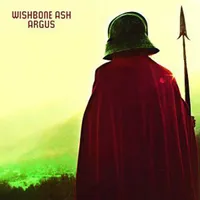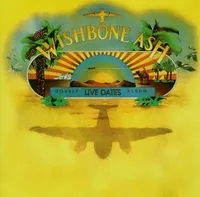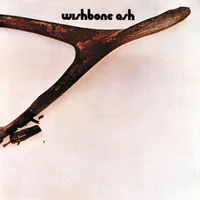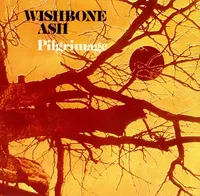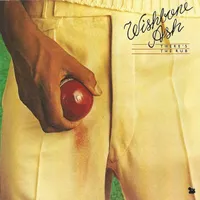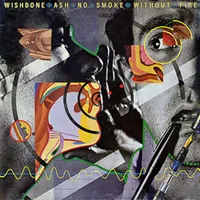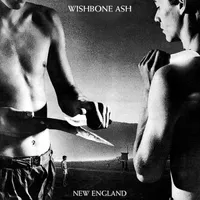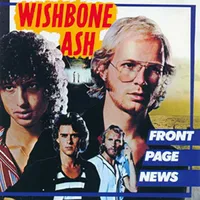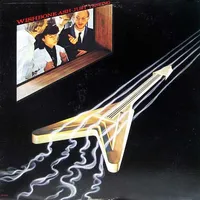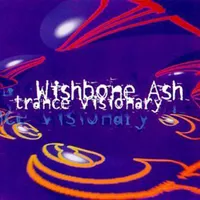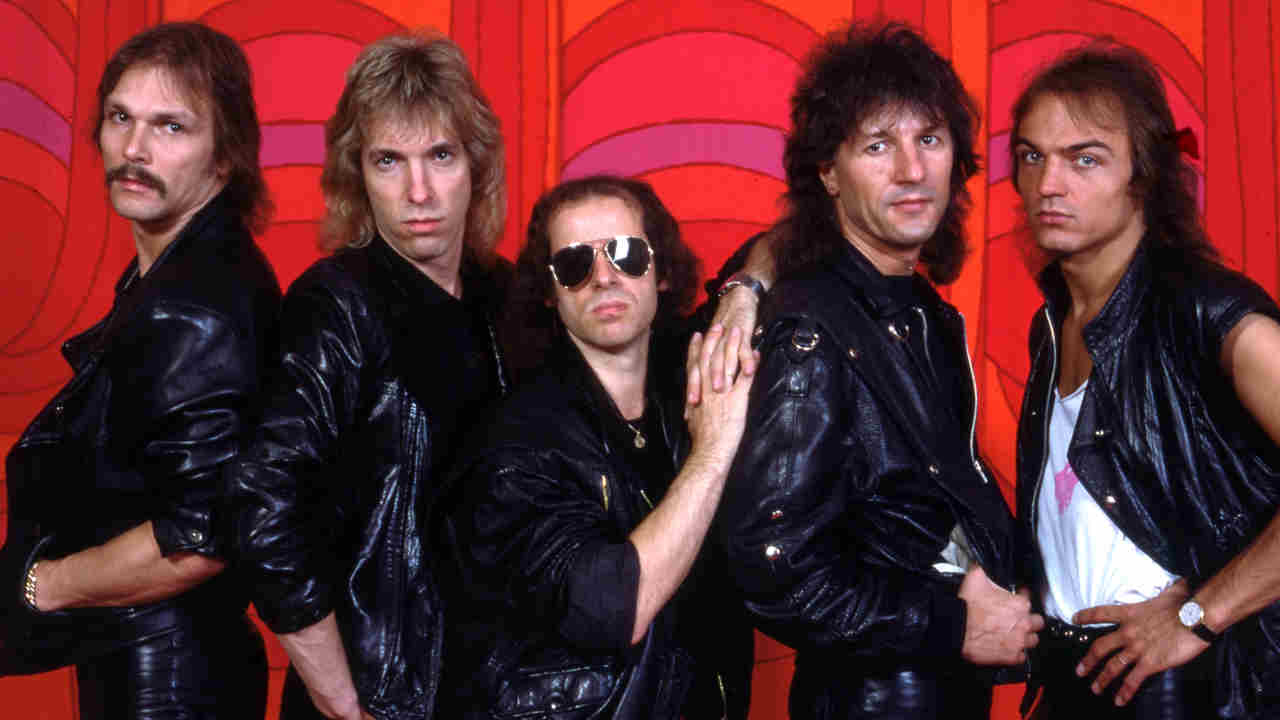The Wishbone Ash albums you should definitely own... and one to avoid
With their twin guitar attack, Wishbone Ash created a whole new sound before venturing into folk, soft rock and – whisper it – techno

Wishbone Ash’s back catalogue is both extensive and convoluted – forbiddingly so to newcomers. Given its richness and diversity, that’s a real shame. As progenitors of a twin-guitar style that paved the way for the likes of Thin Lizzy and Iron Maiden, the band have created some of the most undervalued rock music of the last four decades.
Formed in the sleepy seaside town of Torquay by bassist Martin Turner and drummer Steve Upton, the pair relocated to London in 1969 and teamed up with guitarists Andy Powell and Ted Turner (no relation) via a Melody Maker ad. Their mystical blend of rock and folk came into sharp focus on their third album, Argus, which beat Deep Purple’s Machine Head and David Bowie’s Ziggy Stardust to be voted Album Of 1972 by the readers of both Sounds and Melody Maker.
Wishbone Ash Mark 1 came screeching to a halt in 1974 when Ted Turner abruptly quit both the band, and the entire music business; the guitarist subsequently travelled to South America, bought a donkey and headed off in search of the lost city Of Mu in Peru. His replacement, Laurie Wisefield, ushered in the Mk 2 line-up, and with it a more wide-ranging approach that found them setting their sights on the US to the point where they would decamp to Connecticut in 1975.
There were more serious ructions to come when Martin Turner left the band following 1980’s turbulent Just Testing, leaving Andy Powell as the sole original member and kicking off a series of line-up changes that continue to this day. The bassist rejoined the band twice – from 1987-91 and again in 1995-96 – although he would resurface with his own alternative line-up in 2004, to Powell’s chagrin. As Martin Turner’s Wishbone Ash, they even re-recorded Argus, effectively putting paid to a much hoped-for reunion to mark Ash’s 40th anniversary in 2009.
While everything here dates from that glorious decade between 1970 and 1980, both Turner and Powell continue to celebrate the band's legacy, and in 2018, both parties collaborated on The Vintage Years 1970-1991, a mammoth, limited edition 30CD box set that contained all the Wishbone Ash you could ever need, and much more besides.
Andy Powell’s Wishbone Ash released Coat Of Arms in 2020, while Martin Turner’s version of the band – now playing under the name Martin Turner (Ex Wishbone Ash) after a court ruling – are playing Blowin' Free dates throughout 2025, celebrating 55 years since the original Wishbone Ash formed.

By turns fragile and ethereal, then strident and euphoric, Argus is an almost flawless album. Resplendent in a captivating Hipgnosis sleeve, its seven songs offer a variety of moods, the excellence of compositions such as Sometime World and Leaf And Stream enhanced by the blend of three different voices (everybody bar drummer Steve Upton took turns to sing).
Fifty years down the line, no Wishbone Ash concert is complete without Blowin’ Free, The King Will Come, Warrior or Throw Down The Sword. A 2007 Deluxe Edition adds a bonus disc that exhumes a live performance recorded for Radio One from May 1972.
A double-disc distillation of everything that marked them out as special during in the 1970s, Live Dates is Wishbone Ash’s own Made In Japan or Live And Dangerous. Released shortly before guitarist Ted Turner turned his back on music, it précised what the band had achieved over the course of their first four studio albums in breathtakingly effective style.
Turner and Andy Powell’s twin-harmony parts were simply magnificent and with the already epic Phoenix from their debut album here extended to more than 17 blistering minutes, the band even managed to surpass the existing studio versions of many of their songs.
Although the band had signed their record deal thanks in part to the recommendation of Ritchie Blackmore, their debut album did not rely on hard rock histrionics alone. It’s bookended by a couple of belters – Blind Eye is based upon a powerful stop- start blues-boogie riff and Phoenix signs off with a gently ascending though unmistakably ferocious climax – but their sound was much broader-based than they would be given credit for, taking its cues from jazz, blues, progressive rock and folk music.
An example of the latter is the beautiful and free-flowing Errors Of My Ways, which brings Fairport Convention to mind.
Wishbone Ash’s music has undergone several distinct metamorphoses over the years, including the assimilation of a NWOBHM-inspired tougher edge during the early 80s. Even as far back as their second album, they were diverging into folkier, jazzier and more acoustic-based territories. Reining in the pace, Valediction saw the group’s already impressive vocal harmonies undergo discernible improvement.
Although Jail Bait went on to become a perennial stage favourite, The Pilgrim remains an unsung jewel in the Wishbone canon. The only disappointments here are a pair of inconsequential instrumentals.
With its Hipgnosis-designed artwork of a bowler wiping away the shine from a cherry-red cricket ball with his crotch, There’s The Rub was provocative in differing ways. Produced in Florida by Eagles/Eric Clapton associate Bill Szymczyk, its US-influenced soft-rock strains alienated some fans.
But along with the rapidly assimilated countrified picking style of newcomer Laurie Wisefield – Martin Turner would claim that Szymczyk later used the band’s carefully prepared solos as a blueprint for Hotel California – the quality of Silver Shoes, Persephone and the nine-minute finale of F.U.B.B. is undeniable.
No Smoke Without Fire (MCA, 1978)
In a bid to shake off that same ‘West Coast Rock’ tag, Wishbone Ash’s ninth album found them reuniting with Derek Lawrence, producer of their first three albums.
Besides restoring optimum audio clarity, Lawrence encouraged Laurie Wisefield in particular to shine as both a writer and performer, allowing the guitarist to sing his own composition You See Red, along with Stand And Deliver, one of the record’s hardest-hitting yet most immediate offerings. By contrast the album’s two-part finale, The Way Of The World, saw the group stretching their wings in reassuringly trusted manner.
Released earlier in 1976, the band’s sixth album, Locked In, was a tepid, over-produced disappointment. In an attempt to put that behind them, they retired to Martin Turner’s basement to record the follow up and reconnect with their mojo. Having relocated to Connecticut the previous year – hence the album’s title – New England found them adopting a stripped down approach.
More immediate moments such as Mother Of Pearl and Runaway were undeniably tailored towards US radio play, yet they never quite abandoned the intricate arrangements or deftness of playing that ensured the grooves were instantly identifiable Wishbone Ash.
Wishbone Ash were in laid-back mood on their eighth studio album, though it houses a handful of their most irresistibly unforgettable songs, even though things don’t truly gather pace until the record’s second half gets going.
But what the CS&N-flavoured Goodbye Baby Hello Friend and the instrumental 714 (the latter one of several tunes enhanced by the orchestration of arranger Mike Lewis, who also worked with Englebert Humperdinck and the Bee Gees among others) might have lacked in terms of sheer party animal behaviour was more than compensated for by the nonchalant sophistication of a band at the top of their game.
As befits its title, a state of flux surrounded the protracted birth of Wishbone Ash’s tenth studio album – the last one to feature Martin Turner for seven years. The bassist had baulked at the proposal that they appoint a permanent lead singer, with Lone Star/Uriah Heep man John Sloman among the mooted candidates (in the end, British folk-rock singer Claire Hamill contributed vocals to three songs).
Despite the strains – and the fact that it’s unfairly viewed in some sectors as the sound of a band thrashing around in bewilderment – the result was a rewarding musical experiment with a distant but distinct New Wave-esque twist.
And one to avoid...
You can trust Louder
Trance Visionary (Invisible Hands, 1996)
The least palatable of two controversial mid-90s crossover forays into techno music (the other being the following year’s Psychic Terrorism), Trance Visionary was essentially an Andy Powell record released under the Wishbone handle.
A self-confessed ‘secret raver’, Powell exorcised all traces of rock guitar, ensuring the band’s trademark sound was swamped beneath producer/dance music guru Mike Bennett’s looped production effects. Surprisingly, several of its tracks were well received in the nation’s clubs. “It was mischievous and quite fun to do,” Powell told Classic Rock. “Our diehard fans hated it but I really didn’t care.”
Sign up below to get the latest from Classic Rock, plus exclusive special offers, direct to your inbox!

Dave Ling was a co-founder of Classic Rock magazine. His words have appeared in a variety of music publications, including RAW, Kerrang!, Metal Hammer, Prog, Rock Candy, Fireworks and Sounds. Dave’s life was shaped in 1974 through the purchase of a copy of Sweet’s album ‘Sweet Fanny Adams’, along with early gig experiences from Status Quo, Rush, Iron Maiden, AC/DC, Yes and Queen. As a lifelong season ticket holder of Crystal Palace FC, he is completely incapable of uttering the word ‘Br***ton’.
